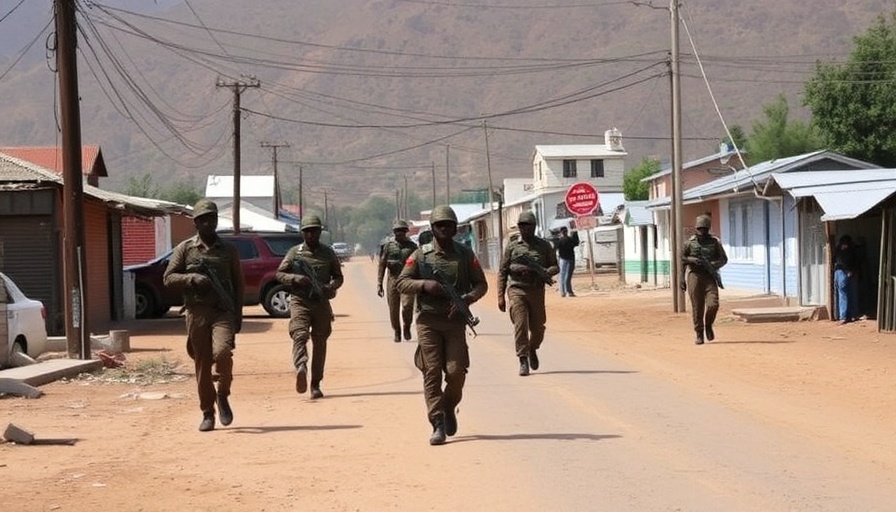
Rising Tensions in Tigray: A Call for Federal Intervention
The recent seizure of the northern Ethiopian town of Adigrat by a faction of the Tigray People’s Liberation Front (TPLF) has intensified the already precarious situation in the Tigray region. Amidst fears of an escalation in violence, local officials are urgently calling for federal assistance to restore order and uphold the fragile peace established after a devastating two-year conflict.
Understanding the TPLF's Internal Struggles
The TPLF has faced significant internal disputes since the end of the war. Following an agreement that concluded the armed conflict in November 2022—resulting in a tragic loss of life and mass displacement—factions have emerged within the party. This internal division is not a mere political hiccup; it threatens to destabilize the tenuous peace that currently exists in Tigray. One faction, led by Getachew Reda, is now publicly challenging the legitimacy and actions of rival Debretsion Gebremichael's faction, raising questions about governance and control in the region.
The Fallout of Conflict: A Humanitarian Crisis
With the renewed fears of conflict, the humanitarian situation in Tigray is again under threat. The legacy of the last conflict left millions of people in need of assistance, with many still reeling from the humanitarian impact. According to reports from Human Rights Watch and other organizations, the conflict’s aftermath has resulted in extensive damage to civilian infrastructures, such as schools and hospitals. Now, any hint of renewed violence could exacerbate an already dire humanitarian crisis, with aid access becoming more restricted.
Implications for Africa's Political Landscape
This appeal for federal intervention in Tigray lays bare the complexity of Africa’s political landscape, particularly within Ethiopia, a nation critical for regional stability and economic progress. For business leaders and policymakers, Tigray's unrest could represent an unsettling reminder of how political instability can affect economic activities. Key stakeholders, including potential investors, need to monitor these developments as they relate not only to internal dynamics but also to wider geopolitical implications, affecting trade routes and foreign relations.
Future Predictions: What Lies Ahead for Tigray?
As the situation develops, several crucial questions arise: Will the federal government respond swiftly to prevent further escalation? How will international organizations react to this escalating crisis? There is a palpable urgency for clear and decisive actions from both the Ethiopian government and international stakeholders to avoid a return to conflict and ensure the stability needed for socio-economic recovery in the region.
The ongoing developments in Tigray should prompt business leaders and policymakers to re-evaluate their strategies concerning trade and investment in Ethiopia. Understanding the internal politics of the TPLF and the implications of potential conflict can enhance preparedness and risk management in the evolving landscape of African geopolitics.
Call to Action: Engage in Diplomatic Solutions
As stakeholders in the future of Africa's socio-economic milieu, it is crucial to advocate for a diplomatic resolution that prioritizes peace and stability. Engaging in discussions and supporting the intervention of neutral international parties could provide the necessary leverage to resolve the crises in Tigray peacefully. Your voice and action can make a difference in steering towards constructive dialogue and a more stable future.
 Add Row
Add Row  Add
Add 


Write A Comment